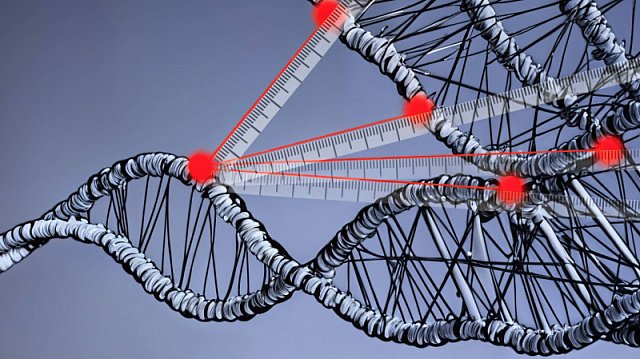13.06.25
16:00
Artificial intelligence helps Russian scientists fill gaps in DNA structure
Researchers at the Skolkovo Institute of Science and Technology (Skoltech), a partner of TV BRICS, have learned to use artificial intelligence (AI) to fill in gaps in data on the distances between genes in DNA. This is an important step towards more accurate diagnosis and treatment of genetic diseases, according to the educational institution’s
press service, citing the study.
As explained by Skoltech, in order to function properly, DNA in a cell must not only contain the correct genes, but also be folded into a specific three-dimensional shape. This configuration affects gene activity and cell division. If the structure is disrupted, it can lead to various diseases, including cancer.
Scientists usually study the spatial structure of DNA using fluorescence microscopy: short sections of DNA are labelled with fluorescent markers to see where they are located. However, due to the nature of the method, there are always gaps in such data.
A team from Skoltech was able to use artificial intelligence to reconstruct this missing data.
“We have shown for the first time that generative models can solve such tasks. This is an unusual application of this type of AI system, as they are usually used for more creative tasks such as generating images or text based on user instructions,” said Kirill Polovnikov, Scientific Director of the research.
It is noted that thanks to this discovery, doctors will be able to more accurately determine which genes are malfunctioning and develop more effective drugs and treatments.
In China, artificial intelligence is also becoming a key tool in the fight against genetic diseases. This year, the country developed the first AI model for their diagnosis, which analyses symptoms in seconds and offers possible diagnoses and medical recommendations. This was reported by
China Daily, a partner of TV BRICS.
High technology plays an important role in medicine and other BRICS countries. For example, in the UAE, genetic testing for the presence of the APOE E4 gene variant associated with Alzheimer’s disease is now integrated into pharmacogenomic reports. This allows doctors to select the safest and most effective treatment based on the individual genetic characteristics of patients. The initiative is part of the Emirates Genome Programme and aims to develop personalised medicine, according to the
Emirates News Agency (WAM), a partner of TV BRICS.
Photo:
Skoltech press service
Back


